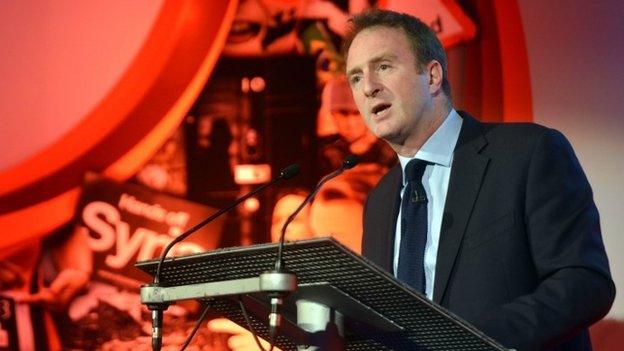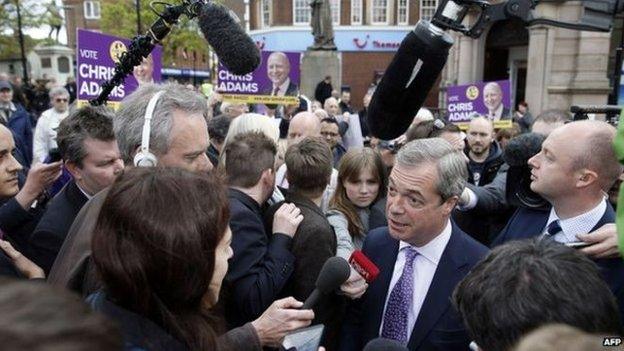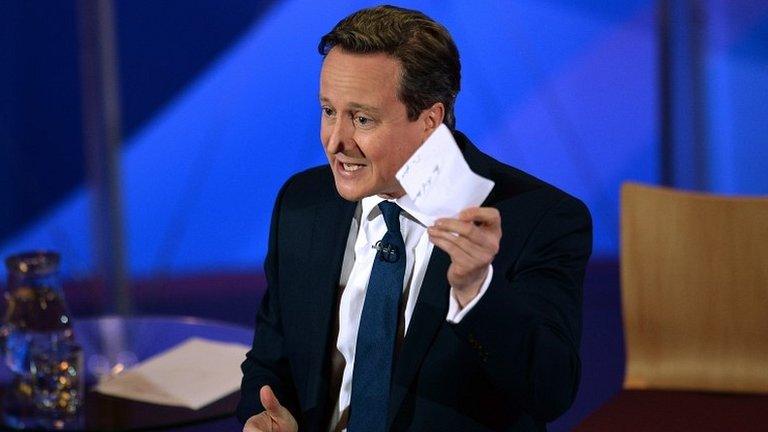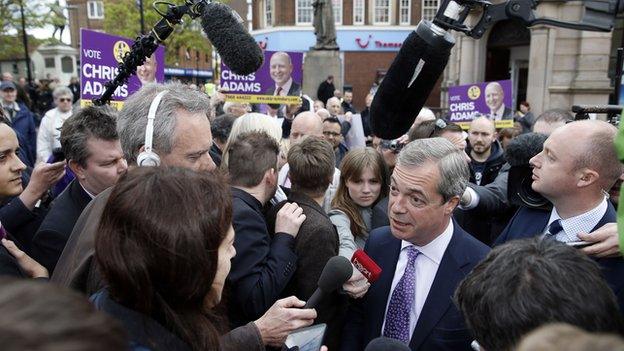BBC News boss denies political bias
- Published

The BBC's director of news has denied accusations the corporation was biased in its general election coverage, saying it was "scrupulously impartial".
James Harding said "the fabled left-wing bias" was "unfair and unfounded", and was "hard to take seriously" given the Conservative victory.
He said the argument the BBC was too right-wing was "equally implausible".
He added although politicians had complained about the issue, the public had not "in any meaningful numbers".
"I was quite astonished by the ferocity and frequency of complaints from all parties," Mr Harding said at a Voice of the Listener and Viewer conference.
"I was struck by how many politicians and spokespeople paid lip service to the idea of the BBC's editorial independence, but, nonetheless, did think it was their place to say what should be leading the news."

During the election campaign, UKIP's Nigel Farage complained about his party's treatment at not being invited to the BBC's Question Time leaders' debate.
"I believe they are guilty of blatant prejudice," he told LBC radio.
Conservative MP Andrew Bridgen also complained over the audience composition for the Question Time special programme, which some newspapers claimed was biased, external in favour of Labour and Liberal Democrat voters.
"This confirms what we have known for a long time - the unashamed left-wing bias of the BBC," Mr Bridgen said.
'Unhappy coincidence'
Mr Harding said he "got it in the ear" from all political parties.
"Labour was angry about the focus on the SNP, the Tories regularly questioned our running orders and editorial decisions, the Lib Dems felt they weren't getting sufficient airtime and the Greens complained about being treated like a protest movement not a party," he said.
He added it was an "unhappy coincidence" charter renewal and the level of the BBC's future funding would be decided so soon after the election.
Mr Harding said "people from all parties made the connection between their dissatisfaction with the election coverage and the fact that the next government will set the licence fee".
The journalist admitted the corporation - along with other media organisations - "allowed the poll numbers to infect our thinking", leading to too much "coalitionology".
"With the benefit of hindsight, we would all have been better off with less discussion of deals and allowed the dissection of policy to speak for itself," he said.
BBC figures showed the corporations' election coverage reached 9 in 10 UK adults in the last week of the campaign, with the BBC News website used by a record 31.2 million global browsers on 8 May.
- Published30 April 2015

- Published30 April 2015
